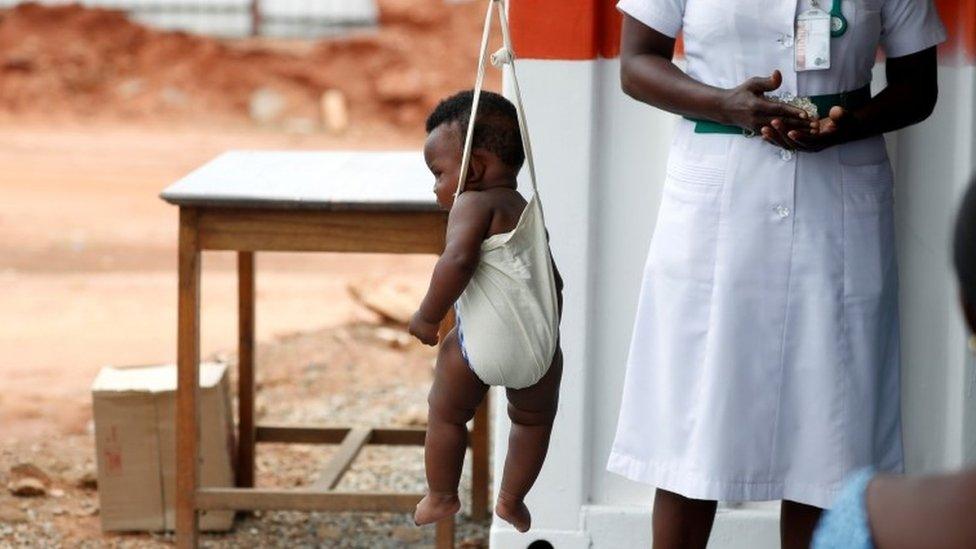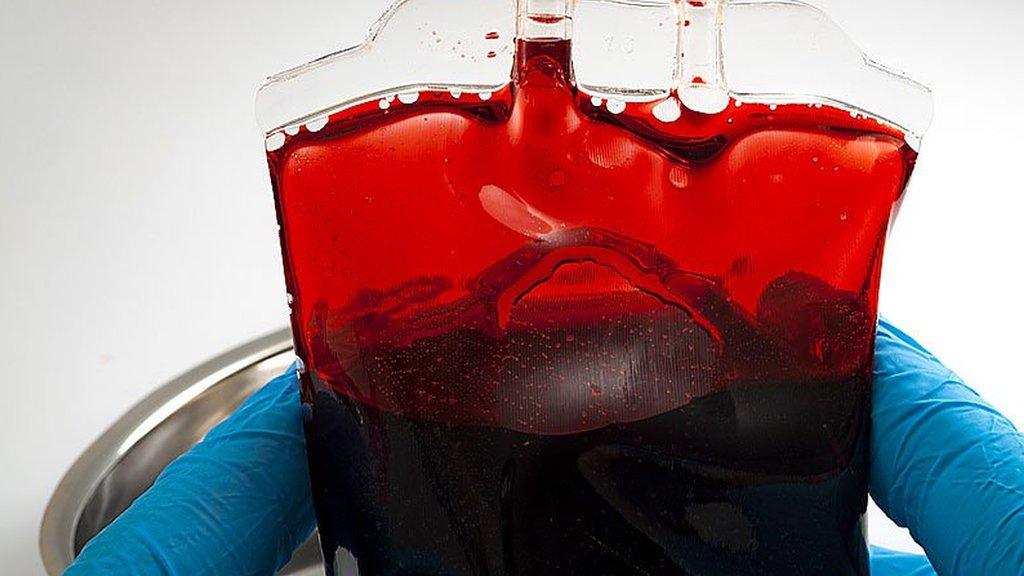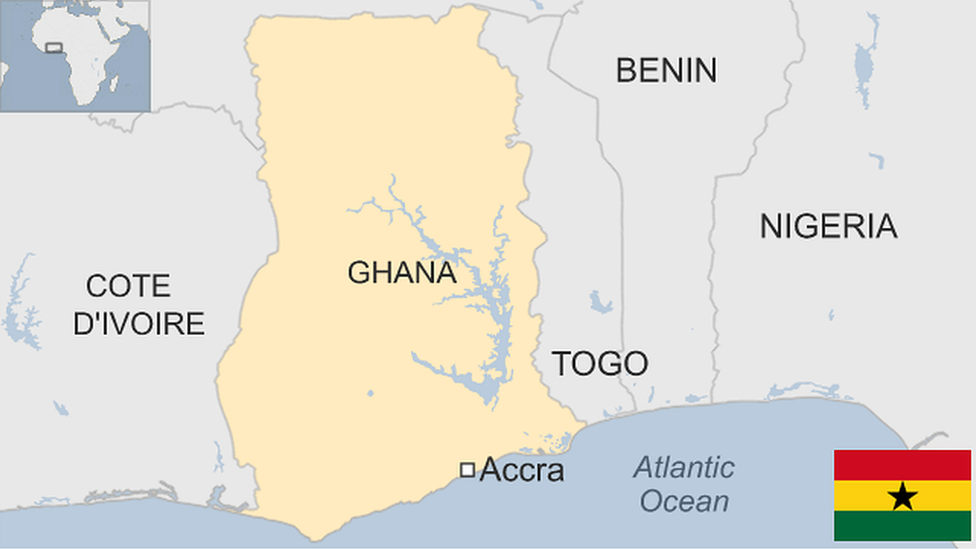Ghana drones: Row over blood-delivery devices
- Published

Critics of the scheme say Ghana has many other health problems that are more pressing
A row has broken out in Ghana over the government's decision to buy unmanned drones to deliver blood and essential medicines.
The government wants the drones to deliver to hospitals nationwide, especially in remote areas.
Some MPs say they want more spent on clinics and ambulances instead of what they call a high-tech vanity project.
Government minister Pius Enam Hadzide rejected the criticism, saying the plan sought to improve health services.
The Ghana Medical Association called for the immediate suspension of the newly approved drones deal, arguing that it would not solve the country's health problems and needed to be tested on a trial basis first.
Mr Hadzide, the deputy minister of information, said he was "taken aback" by the comments, saying the association had been consulted. But he also said "our doors remain open for further engagement and consultation".
The scheme was recently approved along partisan lines by 102 votes to 58, and is set to be implemented next year.
WATCH: Drones deliver blood supplies in Rwanda
A US company, Zipline International Inc, is to be paid more than $12m (£9.5m) to run the project for four years.
Opposition MP Cassiel Ato Forson said the government had negotiated an "extremely bad" deal with Zipline.
The BBC's Favour Nunoo in Ghana says that earlier this year it was reported that the country had fewer than 55 ambulances serving a population of 29 million.
He says this has angered some members of the public who think the drones scheme is not appropriate given the challenges that exist in the health sector.
The case of drone use in Rwanda has been cited by supporters of the Ghana deal, our correspondent says, but critics argue that Rwanda at the time had a more robust healthcare system.
- Published1 May 2018

- Published7 January
